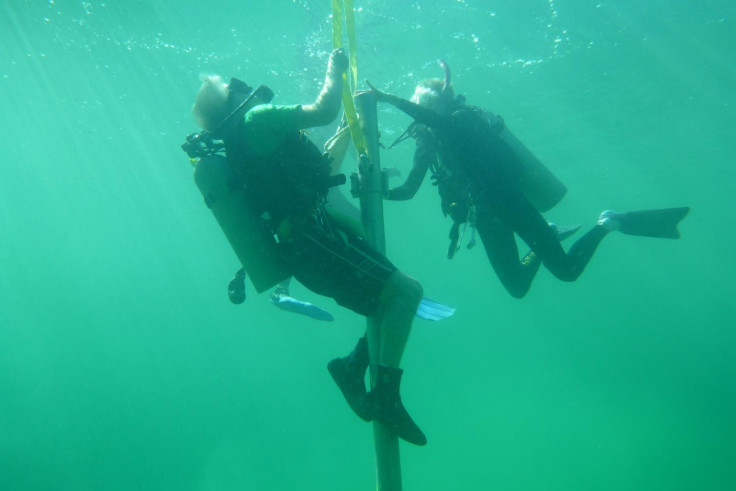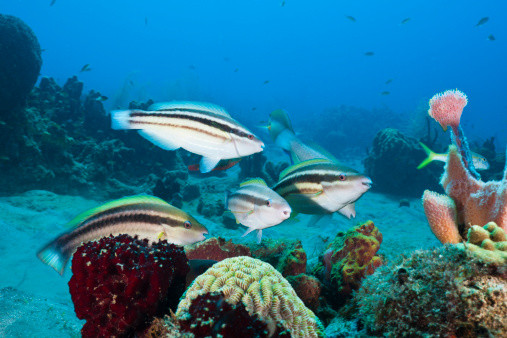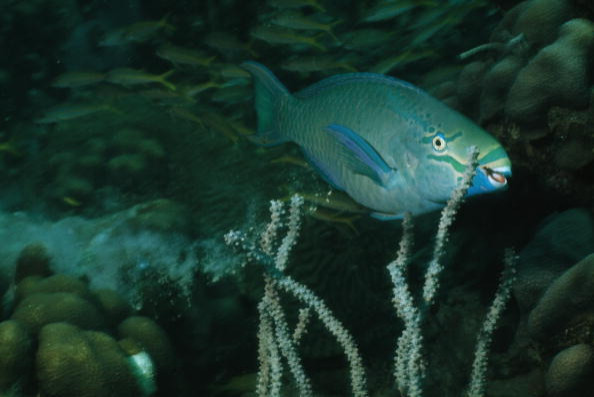Parrotfish are needed for coral reefs to survive and thrive
When parrotfish thrive, so do coral reefs, a model spanning the last 3,000 years has revealed.
Parrotfish are critical to the survival of coral reefs in the Caribbean, scientists have found. Their findings help make sense of the current shift from coral- to algae-dominated reefs.
Coral reefs around the world are under extreme pressure, with massive die-offs regularly reported. In the Caribbean particularly, coral reefs are among the most deteriorated on the planet.
Important changes have been observed there since records began in the 1970s, with perhaps the most dramatic trend being that habitats have gone from being dominated by branching corals to being dominated by macroalgae and low-relief corals.
Disease outbreaks and bleaching epidemics linked to high sea surface temperatures and human activity have recently been blamed for these evolution.
However, the study now published in Nature Communications presents archaeological and paleontological data that suggest a long history of human disturbances to Caribbean reefs. Fishing and land clearing activities seem to have had an impact on reef ecosystems for thousands of years.
Fossilised teeth and sea urchin spines
The authors have reconstructed the changes to reef fish, coral, and urchin communities over the past three millennia by analysing fossils of ancient parrotfish teeth as well as sea urchin spines, which had been preserved within reef sediment cores collected at three sites in Bocas del Toro, Caribbean Panama.

Some of these fossils were deposited during prehistoric times, as early as 997 BCE. More modern fossils dated from the post-industrial era up to the 1980s.
Dating the fossils with a method known as uranium-thorium dating, they were able to develop a high-resolution chronology of change in the numbers of parrotfish, coral and urchin over a long period of time and before human activity got really bad with industrialisation. They also used the data to assess rates of reef growth overtime.

The scientists discovered that coral-dominated reefs grew when parrot fish – but not sea urchins – were more abundant. When the number of parrotfish declined, so did the number of reef-building corals. This leads to a reef habitat dominated by algae rather than coral.
"Our reconstruction of past and present reefs from fossils demonstrates that when over-fishing wipes out parrot fish, reef health declines," says lead author Katie Cramer, a postdoctoral researcher at Scripps Institution of Oceanography.
The study suggests that parrotfish have an important role in preserving coral-dominated reef ecosystems. Better protection from overfishing and efforts to restore their populations is likely to help coral reefs thrive in the Caribbean.

"These findings reveal that parrot fish indeed have a positive and critical role in coral health, a hotly debated issue in coral reef research that cannot be resolved with studies of modern reefs which have already been altered by human activities," Cramer concluded. "Using the fossil record to analyse the natural state of reefs before human disturbance, we have conclusively shown that if we want to protect corals we have to protect the parrot fish from overfishing."
© Copyright IBTimes 2025. All rights reserved.






















